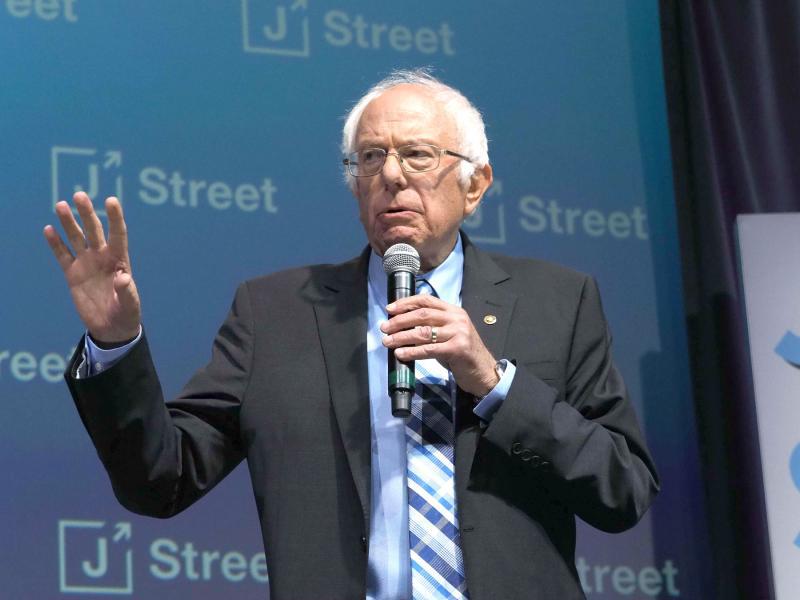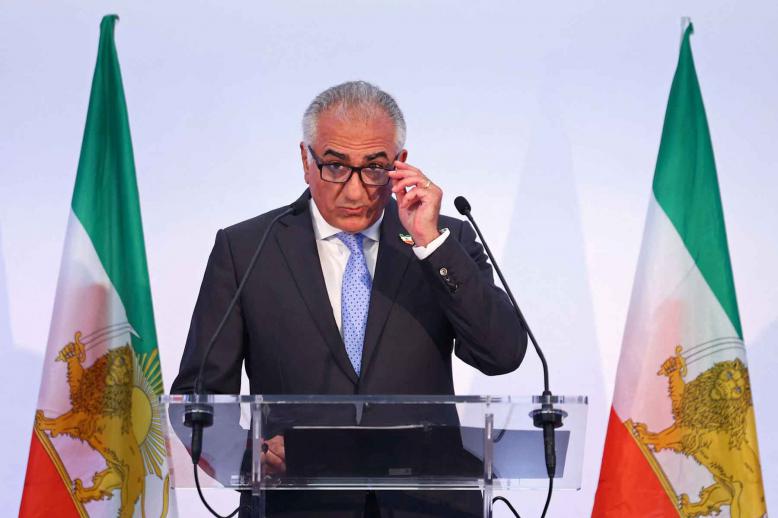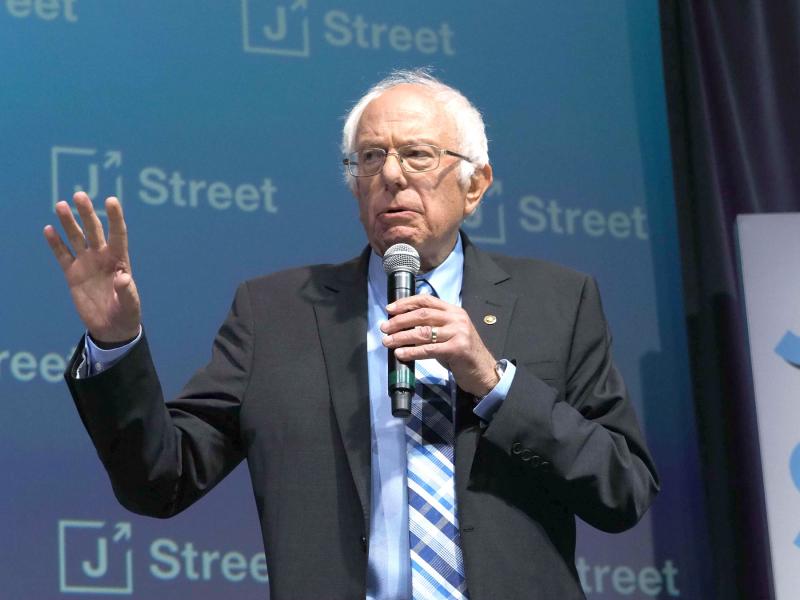US Democratic candidates break taboo on Israel aid
WASHINGTON - US aid to Israel has become a contested issue in the race for the Democratic Party nomination for president, a point underscored by candidates at the J Street Conference in Washington.
With Democrats increasingly distrustful of US President Donald Trump’s relationship with Israeli Prime Minister Binyamin Netanyahu, Democratic candidates sought additional support from J Street, a liberal, pro-Israel lobbying group, through tougher stances towards the Israeli government.
US Senator Bernie Sanders was the most outspoken critic, delivering a hard-line speech against Israel. Sanders has always been critical of Israel but his ideas appear to be gaining traction. A poll in New Hampshire, the first state to vote in the Democrats’ primary season, placed Sanders, from neighbouring Vermont, atop the Democratic field.
The J Street Conference is an annual meeting of the who’s who of Jewish liberals. A non-profit advocacy group founded in 1997, it focuses on the Israeli-Palestinian crisis and was formed to act as a counterbalance to the powerful Israeli lobby in Washington.
Other Democratic presidential hopefuls who spoke at the October 26-29 event included Senator Amy Klobuchar, South Bend, Indiana, Mayor Pete Buttigieg, former Secretary of Housing and Urban Development Julian Castro and Senator Michael Bennet. Former Israeli Prime Minister Ehud Barak was also a speaker.
The Trump administration’s close relationship with Netanyahu, as both struggle with corruption allegations, has made Israel an increasingly partisan topic and Democratic candidates are breaking from their traditional stands to voice stronger criticisms of Israel.
J Street has leveraged Trump’s and Netanyahu’s scandals to garner support for its cause. Michael Koplow, a policy director at the Israel Policy Forum, said Trump is deeply unpopular with Jewish Americans, which “has translated to a more critical attitude towards Israel.” Koplow said individuals who dislike Trump tend to also be critics of Netanyahu.
In his speech, Sanders advocated tying US military assistance to a two-state solution to the Israeli-Palestinian issue. He proposed redistributing some military assistance given to Israel into humanitarian aid in the Gaza Strip, a stark break from the traditional views of the Democratic Party.
In 2016, US President Barack Obama signed a 10-year agreement with Israel promising more than $38 billion in military aid despite publicly calling for Israel to return to the 1967 borders.
Guy Ziv, director of the Israel National Security Project, said the shift in views among Democrats is unprecedented. “That prominent presidential candidates are openly speaking about leveraging US aid to Israel is a significant development because it shatters a taboo — that our foreign aid to Israel is untouchable,” Ziv told the Wall Street Journal.
While not as strident as Sanders, Buttigieg and Castro said they were open to adjusting the conditions of the $3.8 billion of military aid that goes to Israel annually. Castro said such a move would not be his first choice but he “would not take it off the table.”
As Democrats gravitate towards more critical views of Israel, progressives such as Sanders are becoming more popular.
J Street wants opposition to Israeli settlements in the West Bank to be put on the official platform of the 2020 Democratic Party. A poll by the Centre for American Progress indicated that 71% of Democratic respondents said the United States should not provide unrestricted financial and military aid to Israel.
This article was originally published in The Arab Weekly.







